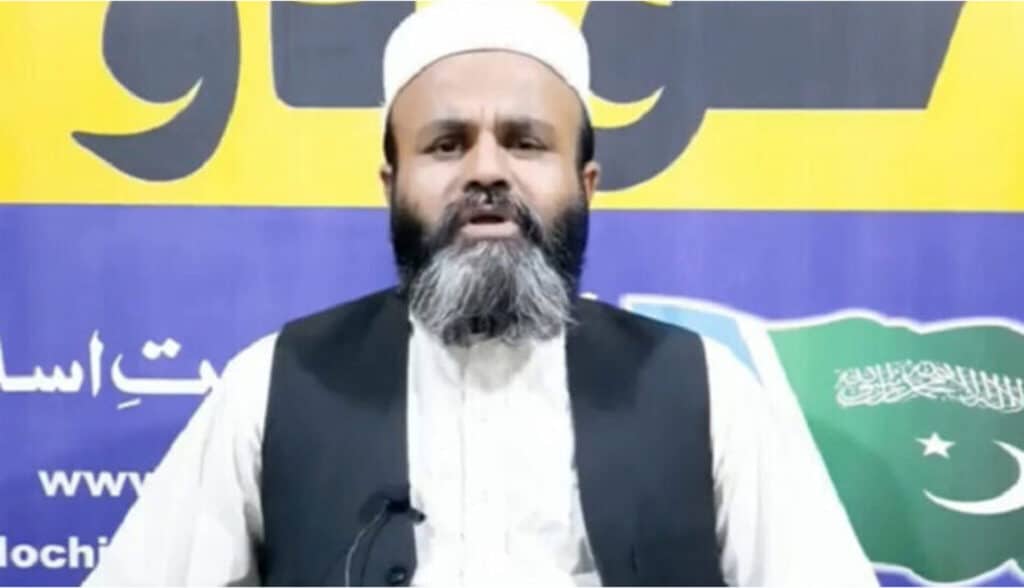QUETTA: Jamaat-e-Islami Balochistan chief and Member of Provincial Assembly Maulana Hidayat ur Rehman has issued a stark warning that the Gwadar Port cannot be made operational unless the local people are first provided with electricity, clean water, and employment. “If the government tries to activate the port without addressing these basic needs, it will have to cross our dead bodies,” he declared during a press conference held at Quetta Press Club on Thursday.
Accompanied by senior party leaders Zahid Akhtar Baloch, Bashir Ahmed Mandai, Abdul Naeem Rind, Abdul Wali Shakir and others, Maulana Hidayat ur Rehman demanded that the federal government fulfill its promises regarding an 8-point charter presented during a previous protest movement. “If these demands are not implemented within six months, we will be left with no option but to resume protests — marching from Quetta to GHQ with a sit-in,” he warned.
He detailed the core demands raised during Jamaat-e-Islami’s long march from Quetta to Islamabad, launched on July 25, which aimed to end state injustices in Balochistan. These demands included: halting enforced disappearances, stopping the Frontier Corps from humiliating citizens at check-posts, removing unnecessary FC deployment, unblocking trade borders, dismantling the trawler mafia, recovering missing persons, ending the dumping of mutilated bodies, releasing political prisoners, restoring political freedoms, and ensuring control over Balochistan’s natural resources remains with its people.
Maulana Hidayat criticized the Punjab government for obstructing the long march but lauded the support they received from the people of Punjab. “Despite the hurdles, the citizens of Punjab welcomed us warmly and stood with our cause,” he said.
He lambasted the Balochistan government, accusing it of acting as an advocate for powerful circles instead of representing the people. “The provincial government has abandoned its responsibility and is failing to address the issues raised in the Balochistan Assembly,” he said.
He revealed that a committee had been formed to oversee implementation of the 8-point agenda, and urged federal authorities to act within six months. “If implemented, these points will ensure employment opportunities, recovery of missing persons, and relief from long-standing grievances,” he said. “We have pursued a peaceful and democratic struggle to amplify the voice of Balochistan’s people at the highest level.”
“If our demands continue to be ignored, we will consult with all stakeholders — political parties, religious groups, and business associations — to form a Jirga that will engage the federal government once again,” he added.
Maulana Hidayat condemned ongoing efforts to operationalize the Gwadar Port while locals remain deprived of basic facilities. “If these injustices persist, activating Gwadar Port will only be possible over our dead bodies,” he declared. He also demanded transparency in all port-related agreements and an end to the mistreatment of people at security checkpoints. “Our mothers and sisters are being insulted at check-posts. This abuse must stop.”
He criticized the government for turning law enforcement into a source of fear rather than protection, noting that “the government exists for only four hours a day — for the remaining 20 hours, there is no state writ.”
He questioned why those who once claimed that 1,500 people are enough to enforce the government’s will are now silent. “Those in charge must fulfill their responsibilities,” he said.
He strongly condemned the allocation of Rs. 80 billion to security forces, stating, “This money is not for eating snacks — it is for restoring peace and ensuring public safety, a duty which they are clearly failing to perform.”
Answering a question, Maulana Hidayat said the government has completely failed to provide the public with basic services or employment. “Instead of creating jobs, the government is pushing people into unemployment,” he said, citing how authorities are shutting down old buses owned by local transporters without providing replacements.
He demanded that the government facilitate local transporters by offering new buses so their livelihoods can be preserved. “We will continue to raise our voice — in the Assembly and on every available platform — to defend the rights of our people and our transport community,” he vowed.





